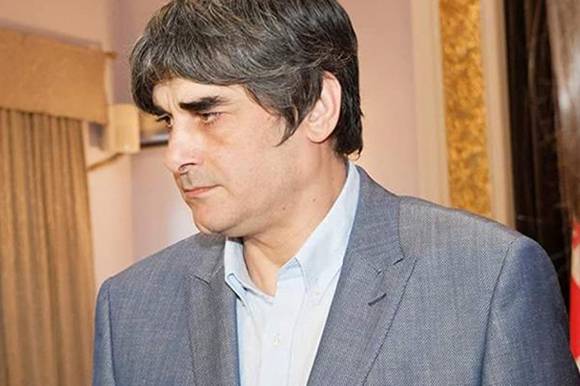FNE: How would you describe the situation of Georgian cinema when you took over as head of the Georgian National Film Centre and what has changed since then?
Zurab Maghalashvili: Since I was appointed Director of the Georgian Film Centre, more attention is paid to film criticism. Two projects were established, aiming at the development of film criticism. The project Write on Georgian Cinema was founded in 2016 and carried out in 2017. Its goal is to support the development of film studies in Georgia and its winner will go to the Berlin International Film Festival. In 2017 we launched 25 Years of Freedom, a project inviting critics to cover films and important events created during Georgia’s 25 years of independence.
Another goal is to create the greatest possible opportunities for young filmmakers to express themselves. In 2017 we introduced contests for project development grants, low-budget films and also postproduction grants. In October 2017 we launched the Bakuriani Forum, allowing Georgian filmmakers to gather and discuss films that are successful or unsuccessful. A lot of work still lies ahead.
FNE: The Georgian cash rebate programme was launched at the beginning of 2016. What have the results been and what are you expecting for the future?
Zurab Maghalashvili: Georgia has one of the most non-bureaucratic systems for cash rebates in Europe. The production, implementation, establishment of the company and all the work that deals with the bureaucracy of cash rebates and can complicate the production process is simple for us. The total value of projects shooting in Georgia has already reached 5 m EUR / 15 m GEL. This is a good indicator of the success of the Georgian system.
We plan to continue to work in this direction and expect to see a continuing increase in the number of people who want to shoot in Georgia. So far we have had projects from Hollywood, Europe, Asia, and now Iran will have a serious project shooting in Georgia in 2018.
We also have a wonderful coproduction competition at the GNFC, which brings a significant amount of money to the foreign industry.
FNE: What other important projects is the GNFC launching in 2018?
Zurab Maghalashvili: We also plan to hold Georgian Cinema Days in 15 countries in 2018. This will be part of an event where we will invite experts and representatives of the world's leading publications as well as Georgian filmmakers, and show them restored Georgian films from the silent era up to the 90s under the slogan "Unknown Georgian Cinema."
We want to show that Georgian cinema started shortly after the beginning of cinema globally. When the USSR collapsed and the entire financial system changed, our country went through amazing cataclysms. Georgian cinema had great difficulties, but I am proud that it survived. I am glad that every generation of Georgian filmmakers is courageous.
FNE: What is being done for the restoration of the Georgian film heritage? What needs to be done next?
Zurab Maghalashvili: Georgian films in the Gosfilmofond archives in Russia are kept in exceptionally good conditions. Until the Georgian state is in a position to support this work and provide the right conditions for storage of Georgian film archives, it is not the right time for these movies to return to Georgia.
If we had tried to restore those original films at this time, we could have lost parts of them because the right storage conditions are needed. Copies of 15 films have already been returned to Georgia and in 2018 we plan to bring another 30-40 films back to Georgia. There are 800 Georgian films kept at Gosfilmofond, starting from the 10s and the 20s until the end of the 90s. As a rule we do a very high quality copy, a duplicate.
This is a long-term project, which we call Return of Georgian Heritage to Homeland, and this is just the first step. The second step will be to build high-level archives in Georgia for the restoration, scanning, color correction and postproduction of films - and this facility will also be usable also for the postproduction of contemporary films, so we could stop spending money for postproduction abroad. The Georgian archives will also be equipped with laboratories, screening halls and a hotel. They will be located outside Tbilisi and will offer great opportunities for film scholars.
I think these archives will be the best ones in the region. These are long-term state plans. If my generation does not make it all happen, hopefully the younger generations will be able to complete this project. We are grateful to the French CNC, we came up with this project and they helped us.
FNE: What do you think about the idea of creating municipal cinemas?
Zurab Maghalashvili: I think municipal cinemas should exist in every city of Georgia. This is not only the competence of the film centre, but it also has to do with the filmmakers. The Ministry of Culture does not have enough power to drive this issue. This is a very important topic. It depends not only on the development of cinema, it is a part of a state cultural policy, that is unfortunately poorly developed these days. If we are able to change the attitude of the State towards culture, the necessity to fulfill it would become part of the States’s agenda. These are themes that we are constantly talking about today.




















